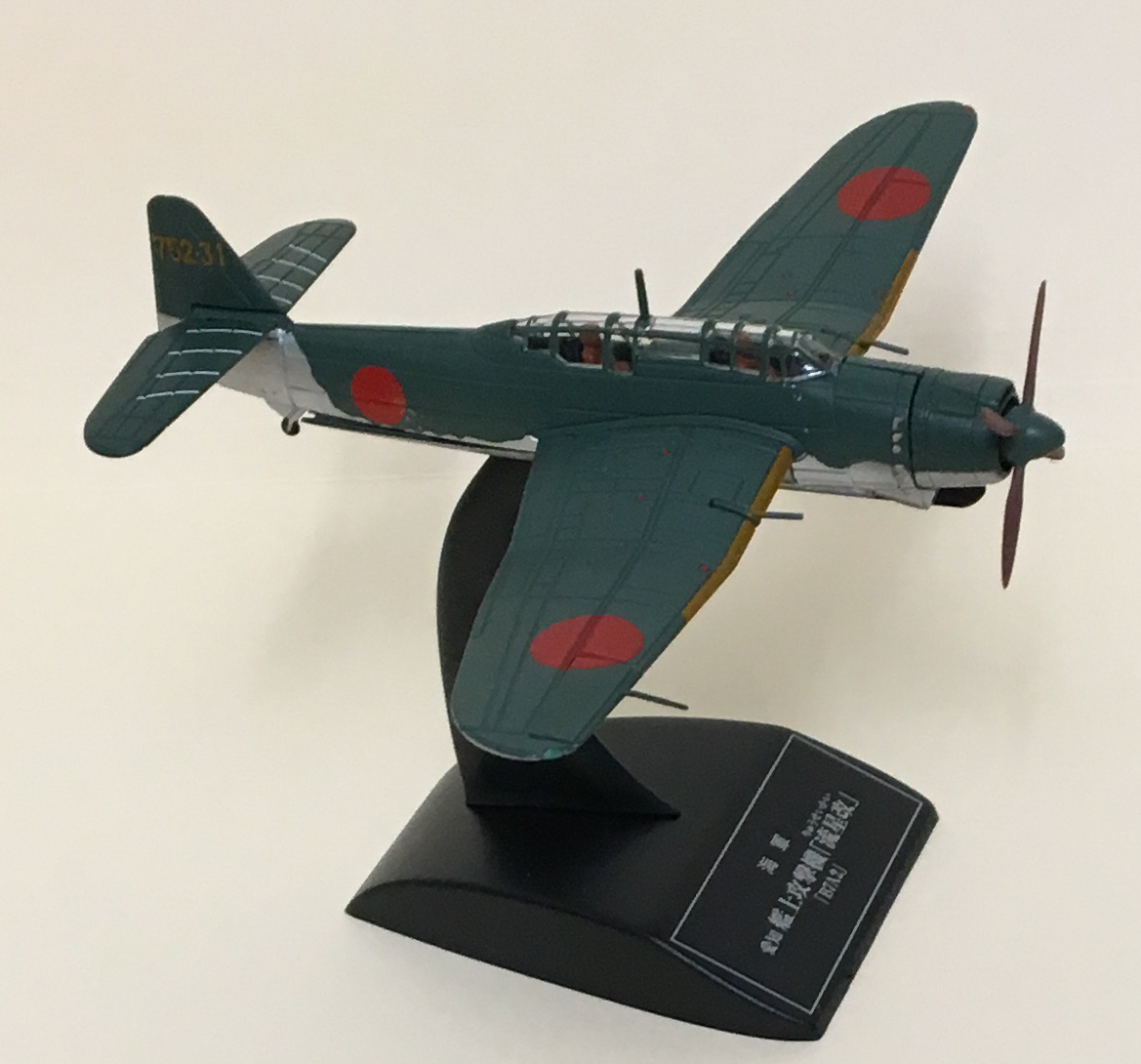FACTOIDS & TRIVIA
The Aichi B7A2 Ryusei (allied
code name "Grace") was the final and most formidable torpedo bomber
designed for the Imperial Japanese Navy. Introduced in June 1944, it
was another case of too little, too late. The plane was designed for
large aircraft carriers which, by 1944, (mostly) no longer existed in
IJN. So, the B7A operated mainly from land bases which limited its
effectiveness. Despite these circumstances, the B7A was an impressive
torpedo bomber. By some accounts of those pilots who flew them, the
B7N, with its inverted gull wings, was as maneuverable and fast as the
Mitsubishi Zero. It was hard to catch and could turn and fight after
dropping its ordinance rather than fly back to home base. One wonders
how good of a fighter this plane could have been if the design was
altered slightly (get rid of the "crew cab" for starters). Aichi
only produced a total of 114 B7A by the end of war. Here's a cool video done in IL-2 (yet another PC-based combat flight game) where a B7A does a torpedo run then takes on a US Navy F4U Corsair.
AICHI
B7A2 Ryusei "Grace"

Class: Torpedo Bomber
Crew: 2
Engine: Nakajima NK9C Homare 12
18-cylinder, twin row radial (1,825 hp)
Max Speed: 352 mph at 16,076 ft
Climb Rate: 1,890 ft/min
Service Ceiling: 36,910 ft
Range: 1,151 miles
- Armament: 1 x .303 inch machine gun
(rear-firing)
-
2 x 20 mm cannon (wing mount)
- 1 x 1,764
lb torpedo or 1,764 lb bombload
Model Scale:
1:100
Back
to the Japanese
Combat Aircraft of WWII
Menu

